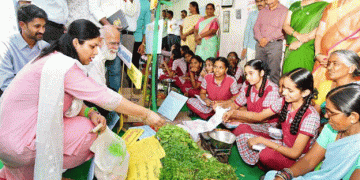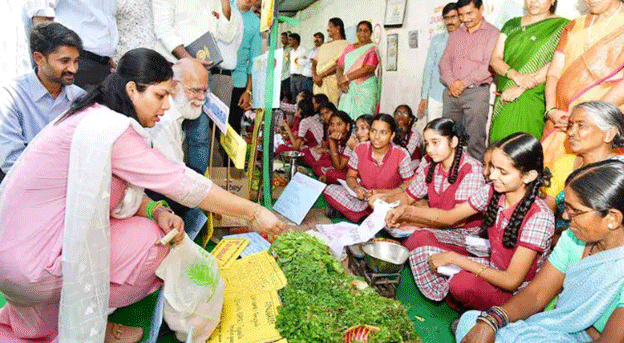In Karimnagar, Telangana, students took a hands-on approach to learning by selling organically grown vegetables at a model market. This initiative, organized by the district education department and Janya Foundation, promotes both sustainable agriculture and youth entrepreneurship—key ingredients for the future of farming.
Telangana’s Youth Join the Organic Movement: A Hands-On Lesson in Farming and Entrepreneurship
In an inspiring blend of education, sustainability, and enterprise, students in Karimnagar, Telangana, recently stepped into the shoes of organic vegetable vendors at the Kashmirgadda Rythu Bazaar. The initiative was spearheaded by the district education department in collaboration with the Janya Foundation, aiming to foster business acumen, agricultural awareness, and environmental responsibility among school children.
The vegetables sold at the market were organically grown by students themselves in gardens located within various government schools. The produce—harvested without synthetic fertilizers or pesticides—was marketed and sold directly by students who not only learned about the value chain of agriculture, but also engaged directly with customers.
District Collector Pamela Satpathy, who inaugurated the event, highlighted the importance of developing practical business skills alongside academic performance. She encouraged students to spread awareness of organic farming within their families and communities, emphasizing that health-conscious and sustainable practices start at home.
This model market goes beyond the classroom and reflects a broader trend in school-based agricultural education. A 2023 report by India’s Ministry of Agriculture emphasized the importance of youth involvement in sustainable farming as a long-term strategy to ensure food security and promote eco-conscious agriculture. Moreover, Telangana has been an active promoter of organic farming, with over 30,000 hectares under organic cultivation, according to government data from 2023.
The state’s Organic Certification Authority has also streamlined support for school gardens and community farms, helping ensure that students not only learn theory but practice what they preach—literally from seed to stall.
This educational experiment aligns with global trends in farm-to-school programs, where institutions serve as hubs for practical agroecology training. In the U.S., for example, farm-to-school initiatives have improved student dietary habits and boosted local farm income by up to $1.2 billion USD annually, according to the National Farm to School Network.
While Telangana’s model is still evolving, this pilot program has opened the door for scaling student-led organic farming initiatives, turning classrooms into incubators for tomorrow’s agripreneurs.
The Karimnagar model market is a powerful example of how agriculture can be reimagined as both an educational and entrepreneurial tool. By engaging students in growing and selling organic produce, Telangana is not only promoting healthier food and farming systems but also nurturing the next generation of farmers, agronomists, and agricultural engineers. As the climate and food systems evolve, these kinds of grassroots efforts may hold the key to building resilient, sustainable agricultural communities.































